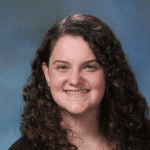Watch Now: Listening to black holes colliding at the edge of the Universe
By Halley Posner | September 25, 2020
![]()
Watch a Bulletin virtual program featuring members of the LIGO/Virgo collaboration, Daniel Holz and Vicky Kalogera, as they discuss how their work will change the way scientists think about astrophysics and the Universe.
In this conversation moderated by Bulletin governing board member Cyndi Conn, you’ll learn how LIGO and Virgo detectors are able to “hear” in gravitational-waves the collisions of neutron stars and black holes – confirming Einstein’s predictions from a century ago. As noted in a New York Times article published earlier this month, the ability to listen to gravitational waves opens up an entirely new and exciting window and “rewrites what we know about our universe.”
Read more Bulletin coverage of disruptive technology and listen to all of our webinars.
Daniel Holz is a professor at the University of Chicago in the Departments of Physics, Astronomy & Astrophysics, the Enrico Fermi Institute, and the Kavli Institute for Cosmological Physics and is a member of the Bulletin of the Atomic Scientists’ Science and Security Board. His research focuses on general relativity in the context of astrophysics and cosmology. He is a member of the Laser Interferometer Gravitational-Wave Observatory (LIGO) collaboration, and was part of the team that announced the first detection of gravitational waves in early 2016 and the first multi-messenger detection of a binary neutron star in 2017. He received a 2012 National Science Foundation CAREER Award, the 2015 Quantrell Award for Excellence in Undergraduate Teaching, and the Breakthrough Prize in Fundamental Physics in 2016. Holz was selected as a Kavli Fellow of the National Academy of Sciences and is a Fellow of the American Physical Society. He received his PhD in physics from the University of Chicago and his AB in physics from Princeton University.
Vicky Kalogera is the co-founder and the current director of the Center for Interdisciplinary Exploration and Research in Astrophysics (CIERA) and the Daniel I. Linzer Distinguished University Professor in the Department of Physics and Astronomy in the Weinberg College of Arts and Sciences at Northwestern. Kalogera is a leading astrophysicist in the LIGO Scientific Collaboration (LSC), LIGO being the telescopes that first detected gravitational waves in 2015. An expert in the astrophysics of black holes and neutron stars and in LIGO data analysis, Kalogera has been a member of the LSC for more than 15 years, and was elected a member of the US National Academy of Sciences in 2018. Kalogera’s astrophysics research involves methods from applied mathematics, statistics and computer science, with extensive use of high-performance computing. In parallel to her gravitational-wave source studies, Kalogera also studies the formation and evolution of stars and their remnants detectable as gamma-ray, X-ray, and radio pulsar sources in the electromagneticspectrum in a wide range of stellar environments. For her research she has been recognized by numerous awards; most recently she was awarded the 2018 Heineman Prize for Astrophysics by the American Institute for Physics and the American Astronomical Society.
Cyndi Conn is a curator of art, ideas, people, experiences. She is currently the Executive Director of Creative Santa Fe, a nonprofit organization dedicated to using collaboration and the power of the arts to reframe critical issues and drive positive change. She is a member of the Bulletin’s Governing Board and serves on the Advisory Boards of The Black Mountain Institute, the National Parks Arts Foundation, and the N Square Innovators Network. In 2018 she co-chaired Mayor Alan Webber’s task force to catalyze job creation. She previously chaired Mayor Javier Gonzales’ housing and community development transition team and was honored by Albuquerque Business First as one of 40 Under Forty awardees statewide. Conn held the position of Visual Arts Director and Curator of the Center for Contemporary Arts, Santa Fe before founding gallery and art advisory firm LAUNCHPROJECTS in 2008. Prior to that she was the Director of EVO Gallery. Cyndi holds a master’s degree in Curatorial Studies and Arts Administration from Skidmore College in conjunction with the Tang Museum, a BA in Latin American studies from Tulane University and studied at the Universidad Ibero Americana in Mexico City.
Together, we make the world safer.
The Bulletin elevates expert voices above the noise. But as an independent nonprofit organization, our operations depend on the support of readers like you. Help us continue to deliver quality journalism that holds leaders accountable. Your support of our work at any level is important. In return, we promise our coverage will be understandable, influential, vigilant, solution-oriented, and fair-minded. Together we can make a difference.
Keywords: Virtual Programs
Topics: Disruptive Technologies, Special Topics














